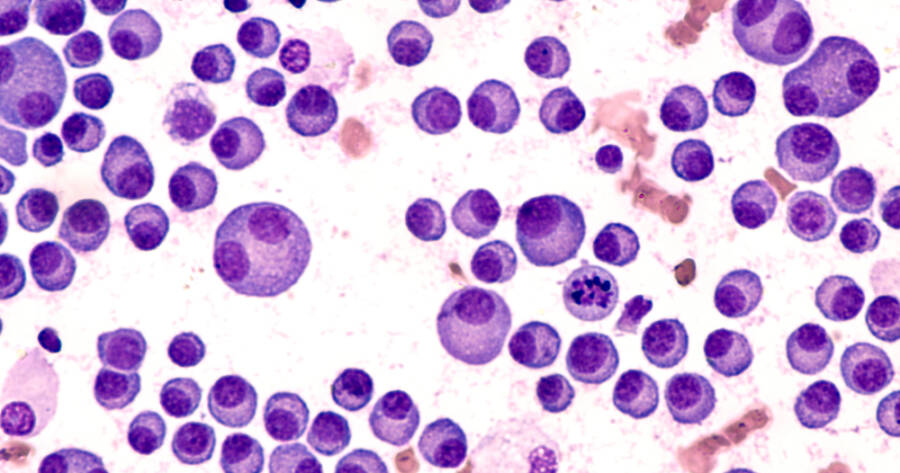Myeloma, a type of blood cancer affecting plasma cells, requires a multifaceted approach for effective management. As research advances, new treatments and patient care strategies continue to emerge, offering hope and improved quality of life. Understanding the various treatment options and advancements can help patients and caregivers make informed decisions about their healthcare journey.
Treatment Options for Myeloma
Managing myeloma often involves a combination of therapies tailored to the individual’s condition:
- Chemotherapy: Traditional chemotherapy uses drugs to kill cancer cells or stop them from growing. While effective, its use may depend on individual health conditions and treatment plans.
- Targeted Therapy: This approach focuses on specific molecules involved in cancer growth, aiming to attack cancer cells without affecting normal cells. It represents a more personalized treatment strategy.
- Immunotherapy: By harnessing the body’s immune system to fight cancer, immunotherapy offers a promising avenue for treatment. It may include monoclonal antibodies or immune checkpoint inhibitors.
- Stem Cell Transplant: Often used for eligible patients, this procedure replaces diseased bone marrow with healthy cells, potentially leading to remission.
Each treatment option has its own benefits and potential side effects, allowing healthcare providers to customize care according to patient needs.
Advancements in Myeloma Research
Ongoing research continues to drive progress in understanding and treating myeloma:
- New drug development: Scientists are continually exploring new drugs and combinations that may enhance treatment effectiveness and reduce side effects.
- Genomic research: Understanding genetic mutations associated with myeloma may allow for more targeted and individualized therapies, increasing treatment success rates.
- CAR T-cell therapy: This cutting-edge treatment involves modifying a patient’s T-cells to recognize and attack myeloma cells, offering new possibilities for those with resistant forms of the disease.
Research innovations are paving the way for more personalized and effective treatment strategies, potentially transforming patient outcomes.
Patient-Centered Care
Holistic care for myeloma patients goes beyond medical treatment, focusing on overall well-being:
- Multidisciplinary teams: Collaborative care involving oncologists, hematologists, nurses, and other specialists ensures comprehensive treatment and support.
- Supportive therapies: Integrating nutrition, physical therapy, and emotional support may enhance recovery and quality of life.
- Patient education: Empowering patients through education and resources allows for more informed decisions and active participation in their care.
These strategies might create a supportive environment, helping patients navigate the complexities of myeloma management.
The Role of Clinical Trials
Clinical trials are key in advancing myeloma treatment and understanding:
- Access to new treatments: Participation in trials may provide access to experimental therapies not yet widely available, offering additional options for patients.
- Contribution to research: By contributing to research, participants play a vital role in the development of future treatments and the progress of scientific knowledge.
- Informed consent: Understanding the potential risks and benefits is crucial, ensuring that patients make informed decisions about their involvement.
Engaging with clinical trials might aid both individual patient care and the broader medical community.
Managing Quality of Life
Addressing quality of life is a central component of myeloma care:
- Symptom management: Effective management of symptoms like pain, fatigue, and bone health is essential to daily well-being and treatment tolerance.
- Psychosocial support: Counseling and support groups can aid in addressing emotional challenges, providing comfort and connection.
- Palliative care: Integrating palliative care focuses on relieving symptoms and improving life quality, tailored to the patient’s goals and needs.
Prioritizing quality of life helps ensure a comprehensive and compassionate approach to myeloma care.
Learn More Today!
The landscape of myeloma treatment is marked by diverse options, groundbreaking advancements, and an emphasis on patient-centered care. From traditional therapies to innovative research developments, patients and healthcare providers have a wide range of tools to manage the disease.
Emphasizing both medical treatment and holistic support, the focus on personalized patient care continues to evolve, offering hope and improved outcomes. By staying informed and engaged, patients may navigate their journey with confidence and resilience, finding strength in a supportive healthcare community.





